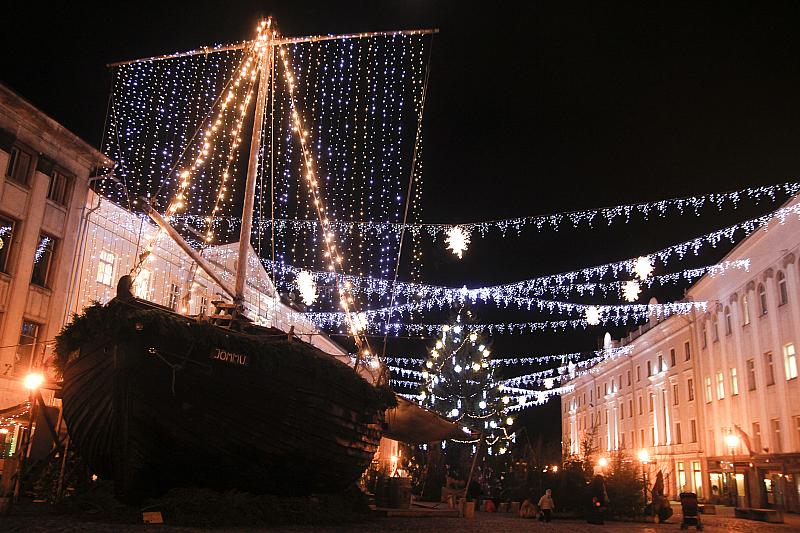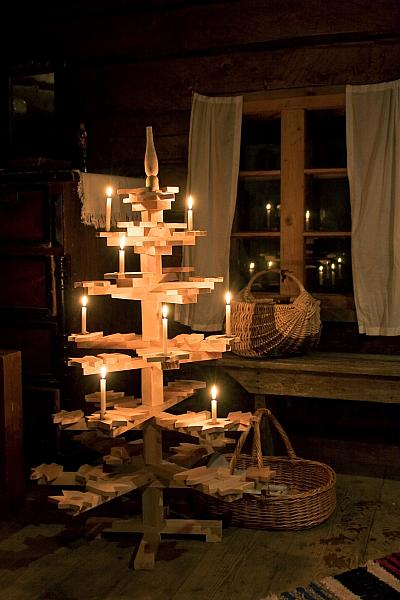PHOTO 1: Currently there is much to see and do on Tartu's Raekoja plats, where a
lodi is
kuivdokis (in dry dock). Photo: Leida Lepik
A large and majestic wooden
paat (boat) has hoisted its sail on Tartu's Raekoja plats (Town Hall Square). But it's bigger than just a
paat, it must be a
laev (ship)... or a
purjekas (sailboat)? Indeed. It has a
puri (sail) to catch the wind and in this case, the gazes of passersby. This unique sailing ship is called a
LODI. A funny word, the plural of which is
LODJAD.
Lodjad were used on rivers and lakes, not on the open sea and are similar to another type of early wooden vessel called a
koge or cog in English.
These ancient sailboats have their own webpage (
www.lodi.ee), that of the Emajõe Lodjaselts or Ema (Mother) River Lodja Association, where we can read that Emajõe-Lake Peipsi
lodjad were one of kind
puust kauba/purjekad (wooden freight sailboats), that were used on Peipsi järv and larger rivers for transporting
kaup (cargo) for over 600 years – from the days of the Hansa, the Hanseatic League in the 14th century, until the mid-20th century. The majority of
lodjad were destroyed in WW II. The
lodi named Jõmmu, currently gracing the heart of Tartu, was built in 2006.
An entire
jõulu/linn or Christmas city is open on Tartu's Raekoja plats throughout detsember, also called
jõulu/kuu. This includes all kinds of events,
laadad (fairs) and performances. Follow the Facebook pages: Tartu linn, Tartu kultuuri/aken, Jõululinn Tartu and Emajõe lodjaselts to find out more.
Visitors are invited to seek shelter from the chill in Jõmmu's warm
trümm – no, not
trumm (drum) – a
TRÜMM is a ship's hold, also called the
laeva lasti/ruum, used for storing cargo. Jõmmu's
trümm is heated with a
puu/pliit (wood stove) and you can drink tea and send
jõulu/post from within, since there is also a
post/kontor (post office) in the
lodi! If you want to hear and sing along to a great song by Väikeste Lõõtspillide Ühing (the Small Accordians Society) about a ship's
trümm, then go to
http://www.vly.ee/albumid1_mil... The first song is Laevatrümm and the lyrics are alongside.
Häid pühi! Happy holidays! Riina Kindlam, Tallinn
PHOTO 2:
Not just a case of modern day responsible recycling or upcycling, but an old seafaring tradition. While at sea, with no land or
kuused (fir trees) in sight,
mere/mehed (seamen) used what they had on hand to craft a symbolic tree. Pieces of leftover lumber were nailed together and decorations could include bits of rope or even
õnged (fishing hooks). A 33-metre tree constructed in the same simplistic vein in the N-E Estonian city of Rakvere has become world famous this year, named by Huffington Post as one of the most over-the-top Christmas trees of 2014. Photo: Eesti Vaba/õhu/muuseum, the Estonian Open-Air Museum


